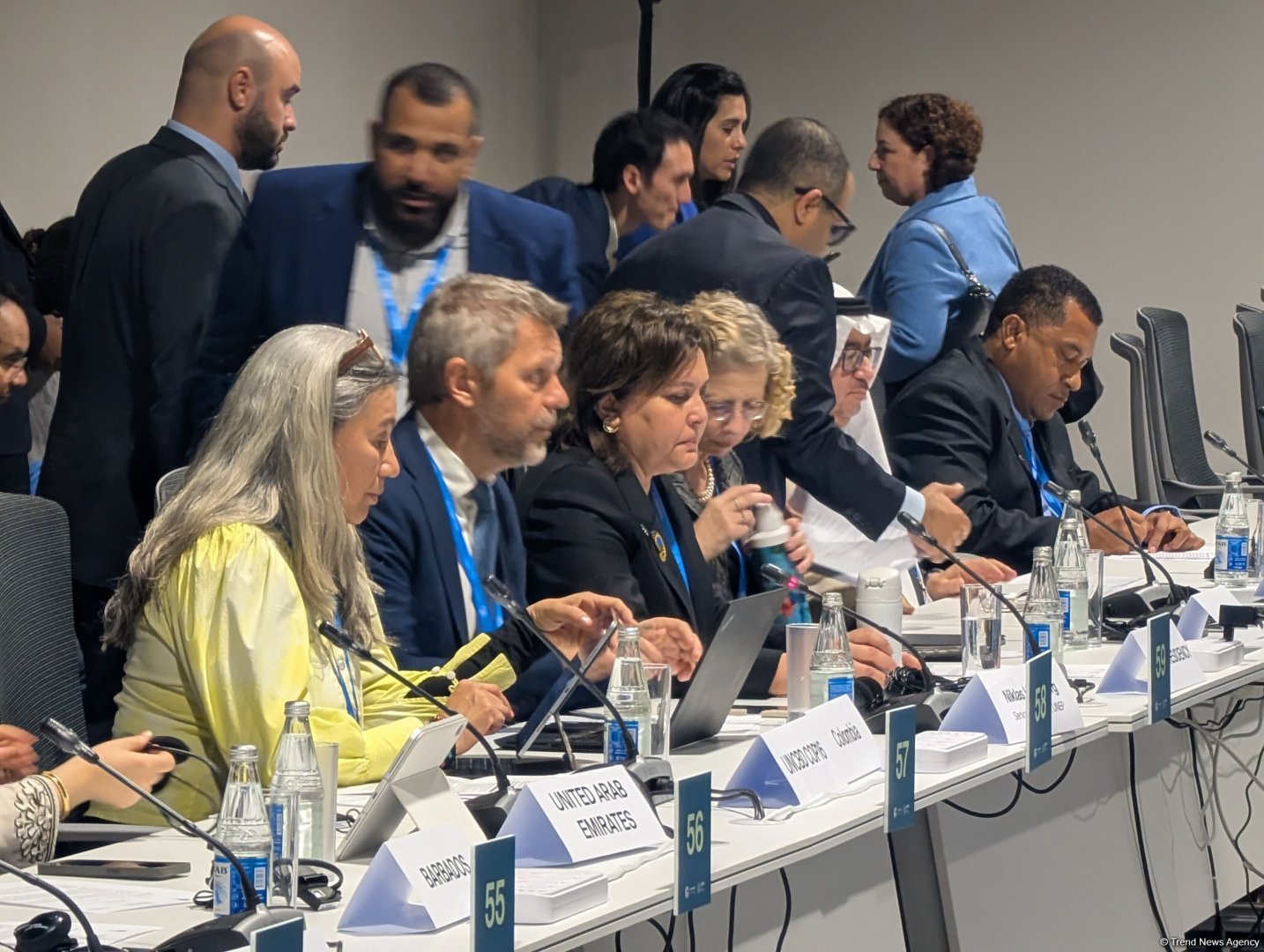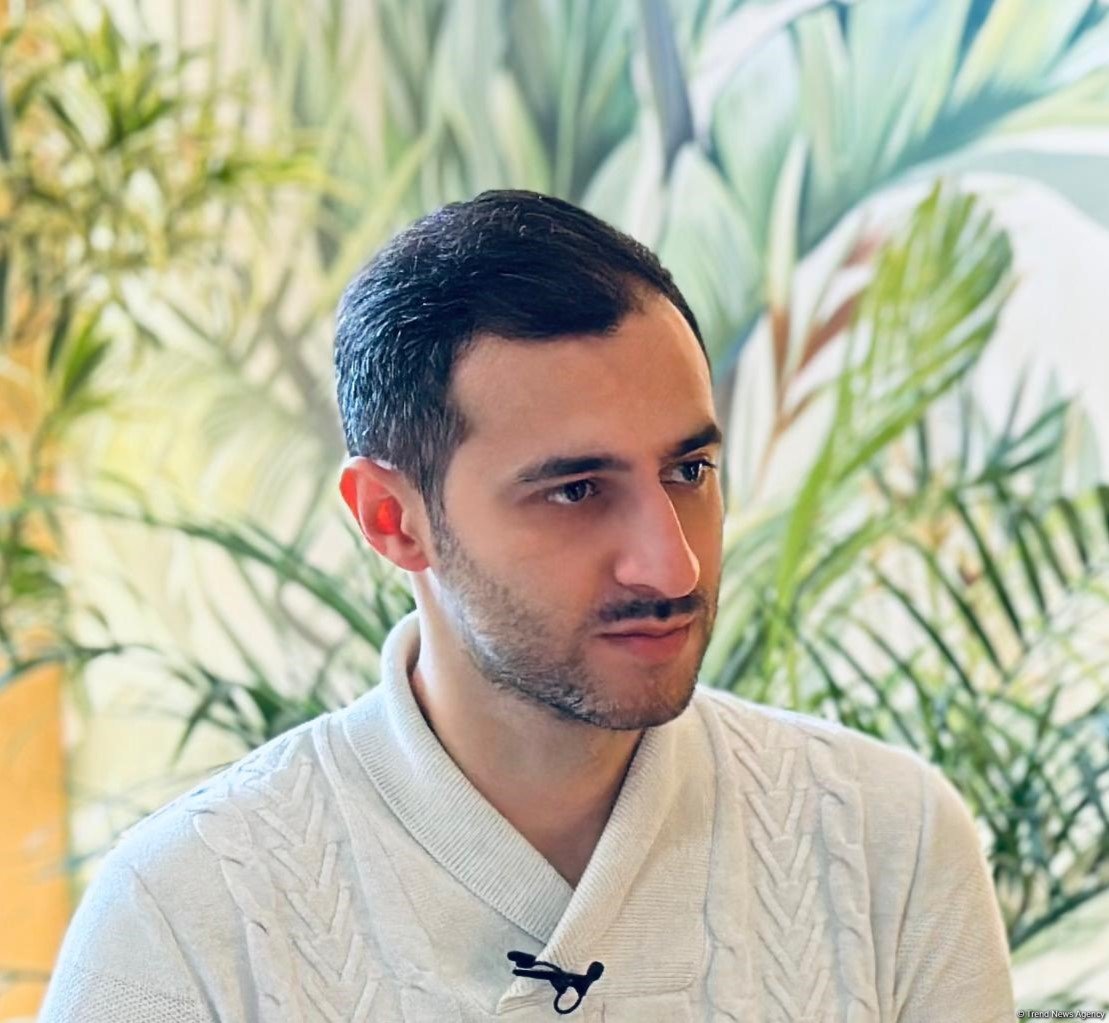BAKU, Azerbaijan, November 21. A high-level dialogue is being held on the topic “Enhancing knowledge exchange between conventions to ensure the sustainability of ecosystems” on Rio Trio Initiative (Colombia, Azerbaijan, Saudi Arabia) at COP29 in Azerbaijan's Baku, Trend reports.
Deputy Minister of Ecology and Natural Resources of Azerbaijan Umayra Taghiyeva said that the Rio Trio initiative is a symbol of collective action.
“First of all, I would like to sincerely thank our co-organizers, Colombia and Saudi Arabia, for their strong commitment to the Rio Trio Initiative. I also thank all of you for your expertise and dedication to this important discussion. Your presence is a testament to our shared commitment to addressing the interlinked challenges of climate change, biodiversity loss, and land degradation. The Rio Trio Initiative is not just a partnership, but a symbol of collective action,” she said.
Deputy Secretary General of the United Nations (UN) and Executive Director of the United Nations Environment Program (UNEP) Inger Andersen noted that it is necessary to have a coordinated approach on NDCs, NAPs, NBSAPs, and land degradation neutrality reports.
“We need a coordinated approach on Nationally Determined Contributions (NDCs), National Adaptation Plans (NAPs), National Biodiversity Strategies and Action Plans (NBSAPs), and land degradation neutrality reports. You can't have the same people doing these tasks over and over again. This is not just about the three conventions. It's about the many conventions that countries have signed, which we value very much. At UNEP, we have 17 such conventions, including the “chemical” conventions - Basel, Rotterdam, Minamata, Stockholm, and soon, hopefully, the Plastic Convention. There is a link between all of them. It's the Montreal Protocol, for example: by reducing chlorinated gases, we are not only affecting climate change but also protecting biodiversity and everything that grows on our land. Similarly, when we reduce plastic pollution in the environment, we not only enhance our food production but also avert flooding from plastic-clogged gutters, a problem that primarily impacts the poorest individuals residing in low-lying regions. Overuse of fertilizers leads to the harmful release of nitrous oxide, a potent greenhouse gas. Everything is connected to everyone. Therefore, we must integrate NDCs, NAPs, NBSAPs, and plans to combat desertification. This is the only way forward,” she emphasized.
UAE Minister for Climate Change and Environment Amna bint Abdullah Al-Dahak stressed that the UAE is implementing a data-driven approach to find critical solutions in the fight against climate change.
"Data plays a key role in assessing policies and developing fact-based solutions. Data analysis allows for objective progress tracking, identifying challenges, forecasting events, and adapting measures. In the UAE, where 49 protected areas have been established, data is used to identify successful solutions and scale effective measures. We apply a data-driven approach to find critical solutions in the fight against climate change. Data sharing helps promptly adjust policies in line with regional characteristics and achieve synergies across management levels. As a public resource, data requires transparency and consideration of local knowledge, which provides important context and highlights information gaps. Investments in nature-based solutions, supported by local observations and focus groups, help develop tailored measures and use natural resources more effectively. This approach contributes to achieving sustainable climate goals," she said.
Stay up-to-date with more news on Trend News Agency's WhatsApp channel







